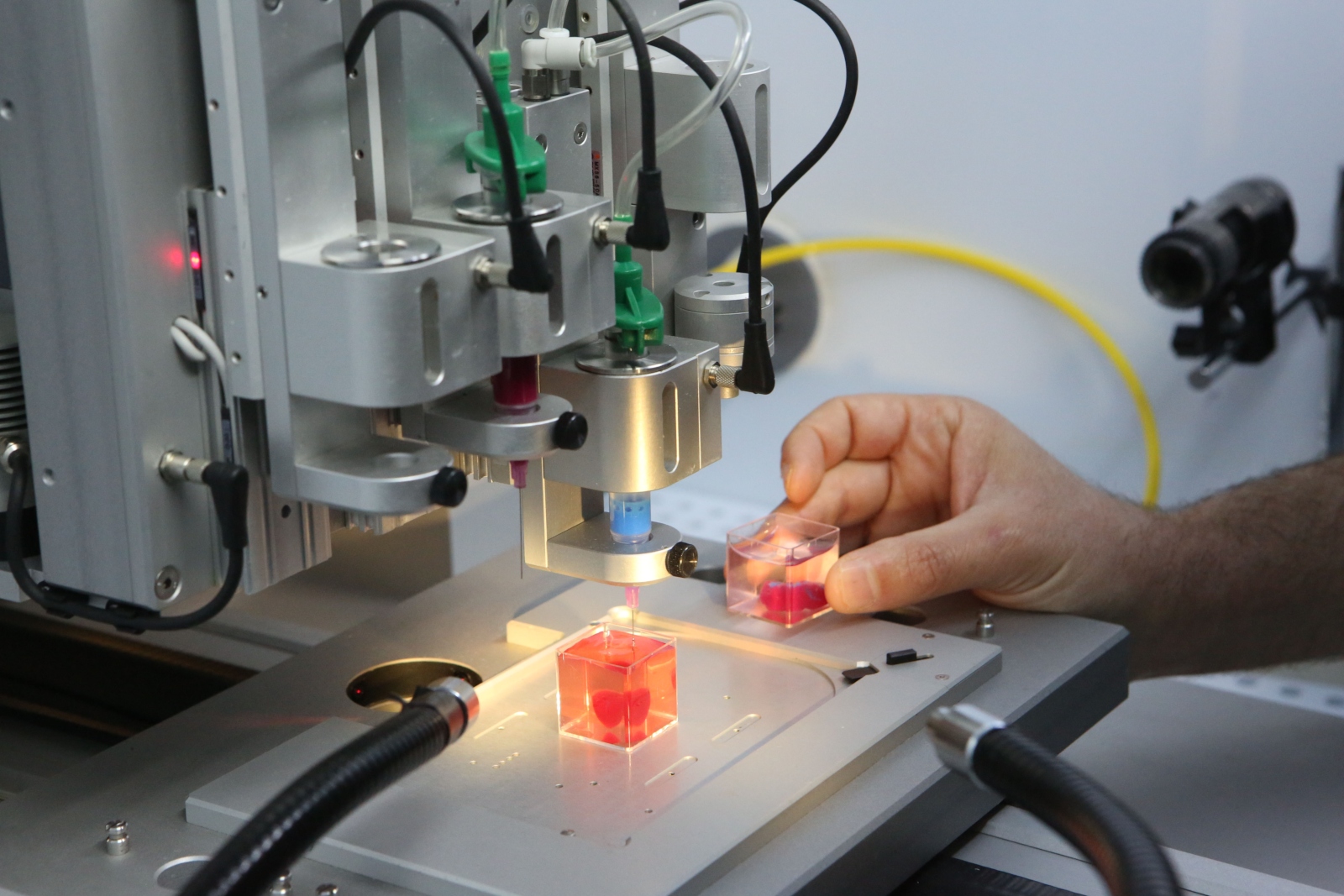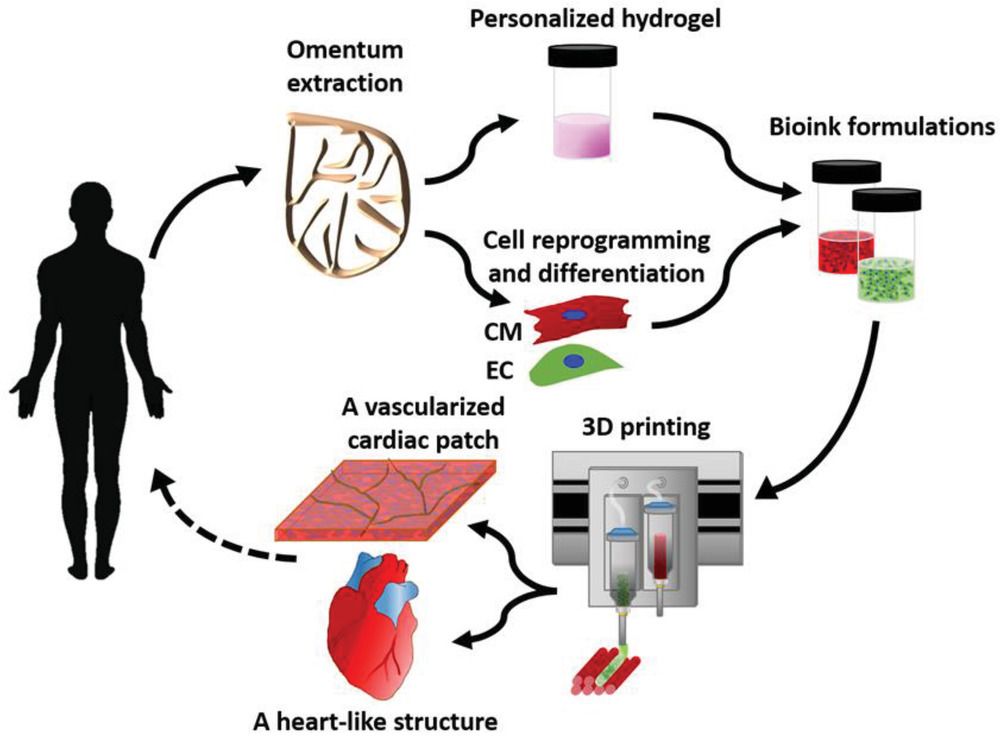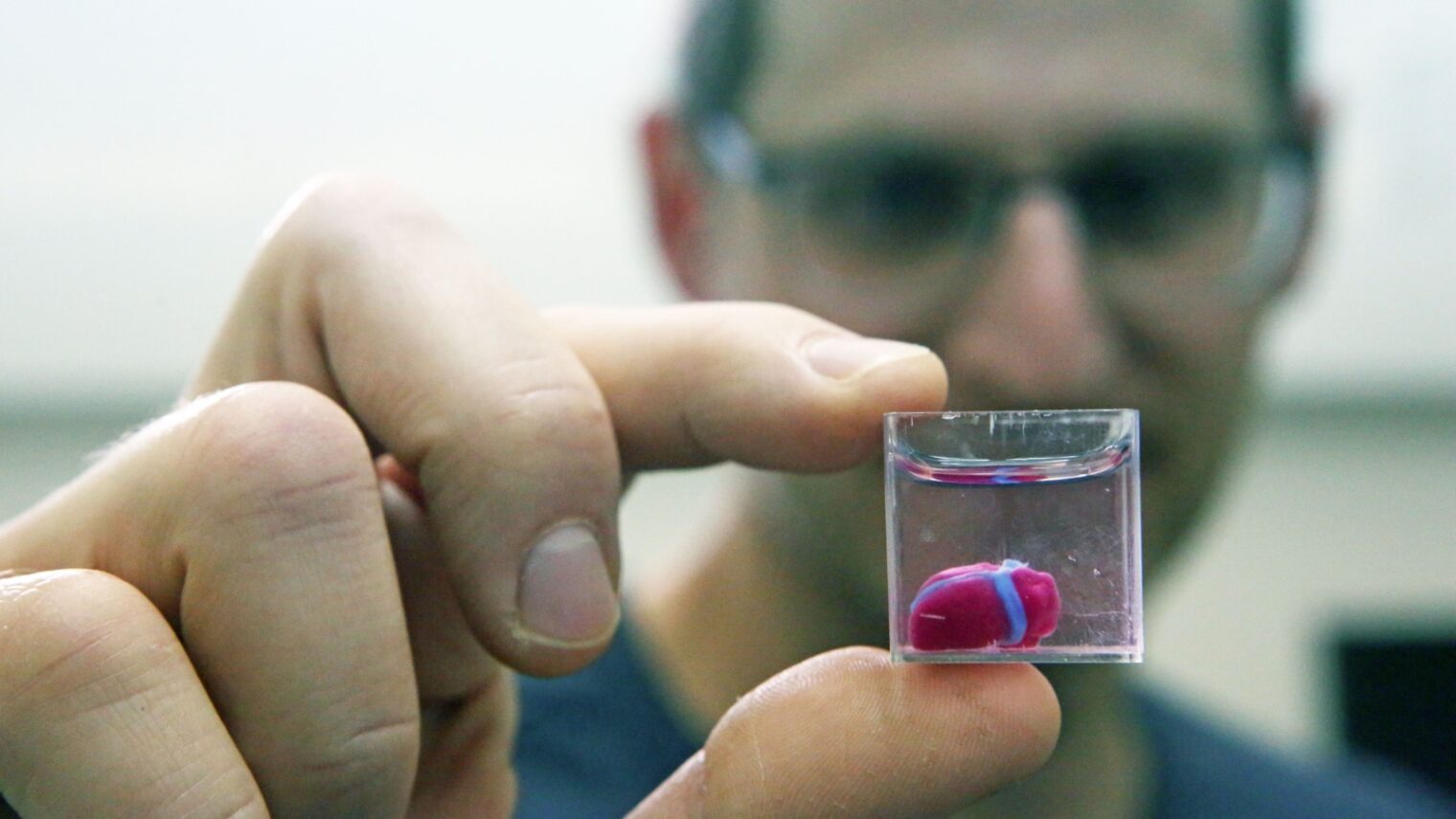Cardiovascular disease is the world’s leading cause of death. Heart transplants are often the only option available for patients in the worst cases. But the number of heart donors is limited and too many patients die while waiting.
What if hospitals could simply print out a new heart?
That’s the tantalizing promise that Tel Aviv University researchers made this week with the announcement that they had successfully used a 3D bio-printer to create a heart complete with human tissue and blood vessels.
While the university called it a “major medical breakthrough” that advances the possibilities for transplants, this 3D-printed heart still has some thumping limitations.
First, it’s only the size of a rabbit’s heart. Journalists who attended the press event in Tel Aviv were shown a 3D print of a heart that looked more like a cherry, immersed in liquid.

Second, the cells in the 3D heart can contract, but don’t yet have the ability to pump. Researchers must now figure out how to teach the printed hearts to behave like real ones.
This is not the first heart to be 3D printed, but never before has it resulted in an organ “with cells or with blood vessels,” said Tal Dvir, who led the project at Tel Aviv University’s School of Molecular Cell Biology and Biotechnology.
Previously, scientists in the emerging field of regenerative medicine have been able to print cartilage and aortal valve tissue, but not the capillaries without which the organs cannot survive, let alone function properly.
Dvir said the researchers’ next steps would be to transplant a 3D-printed heart into an animal model. Their aim is for that to happen sometime in the next year.
“Maybe, in 10 years, there will be organ printers in the finest hospitals around the world, and these procedures will be conducted routinely,” Dvir added, although he expected hospitals would likely start with simpler organs than hearts.
Could solve rejection problem
A 3D-printed heart may be able to bypass one of the most serious problems involved in transplants: rejection of the new organ by the patient.
The Tel Aviv University researchers propose to use a biopsy of a patient’s own fatty tissue in the development of a “personalized hydrogel” that will serve as the “ink” necessary to print the heart.
“The biocompatibility of engineered materials is crucial to eliminating the risk of implant rejection, which jeopardizes the success of such treatments,” Dvir said.
In that way, 3D-printed hearts – and ultimately many other types of human organs – would essentially be customized to the specific patient.

Dvir added that he hopes organ printing will render organ donation obsolete.
That said, there are other challenges on the road ahead. Current 3D printers are limited by their resolution; that makes it hard to print all of the many tiny blood vessels. And the researchers need to determine how to expand the cells so that they have enough tissue to print a full human-sized heart.
But this week’s announcement was a major step forward, as “larger human hearts [will] require the same technology,” Dvir explained.
In addition to Dvir, the team included Dr. Assaf Shapira of Tel Aviv University’s Faculty of Life Sciences and doctoral student Nadav Noor.
The Tel Aviv tale of this tell-tale heart was published on April 15 in the peer-reviewed journal Advanced Science.













